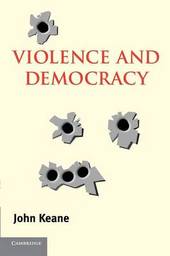
|
Violence and Democracy
Paperback / softback
Main Details
| Title |
Violence and Democracy
|
| Authors and Contributors |
By (author) John Keane
|
| Series | Contemporary Political Theory |
|---|
| Physical Properties |
| Format:Paperback / softback | | Pages:228 | | Dimensions(mm): Height 229,Width 152 |
|
| ISBN/Barcode |
9780521545440
|
| Classifications | Dewey:303.6 |
|---|
| Audience | | General | | Professional & Vocational | | Tertiary Education (US: College) | |
|---|
| Illustrations |
Worked examples or Exercises
|
|
Publishing Details |
| Publisher |
Cambridge University Press
|
| Imprint |
Cambridge University Press
|
| Publication Date |
24 June 2004 |
| Publication Country |
United Kingdom
|
Description
In this provocative book, John Keane calls for a fresh understanding of the vexed relationship between democracy and violence. Taking issue with the common sense view that 'human nature' is violent, Keane shows why mature democracies do not wage war upon each other, and why they are unusually sensitive to violence. He argues that we need to think more discriminatingly about the origins of violence, its consequences, its uses and remedies. He probes the disputed meanings of the term violence, and asks why violence is the greatest enemy of democracy, and why today's global 'triangle of violence' is tempting politicians to invoke undemocratic emergency powers. Throughout, Keane gives prominence to ethical questions, such as the circumstances in which violence can be justified, and argues that violent behaviour and means of violence can and should be 'democratised' - made publicly accountable to others, so encouraging efforts to erase surplus violence from the world.
Author Biography
John Keane is Professor of Politics at the Centre for the Study of Democracy, University of Westminster. He is currently writing a full-scale history of democracy - the first for over a century.
Reviews'Keane's is a learned, at times almost magisterial, book. He writes easily and with grace about a variety of relevant topics from liberal political theory to contemporary apocalyptic terrorism, from Sorel to Muslim fundamentalism. At every turn the reader is taken on a gambit into a relevant literature and comes away braced by the journey. It is descriptively ambitious yet energized by a normative argument. It is as current as today's politics yet in touch with classic traditions in political theory and sociology. As a result, Violence and Democracy is impressive indeed.' Austin D. Sarat, Amherst College, Massachusetts
|